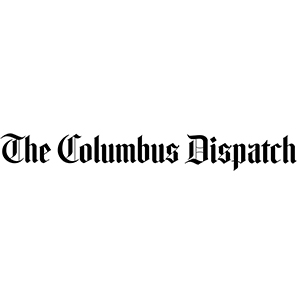When COVID-19 first struck, some 12 odd months, 300-plus days and a million light-years ago, I was a senior in college, primed to graduate and feeling confident I’d land a job in journalism.
I got the job, but I lost my confidence.
Lately, I wake up bleary-eyed with a pit in my stomach. I check my phone and doom-scroll through Twitter before getting a notification that my 9 a.m. meeting is starting.
After snoozing through my alarms, I’m finding it harder to drag myself out of bed, brew a pot of coffee and log in to Microsoft Teams each day.
Somewhere in between virtual graduation, moving to a new city and the rush of reporting, thoughts of self-doubt, loneliness and despair crept it. Hundreds of miles from my family and friends, I pushed what felt like unseemly fears from my mind for months.
I’ve considered passing attempts at self-improvement. I saw an ad for a set of LEGOs recently and thought, “Hey I used to love those as a kid. I should buy some. It’d keep my mind busy.” But like my daily walks amid waning sunlight, those thoughts were not enough to buoy my spirits.
Was re-downloading dating apps, just to secure a milquetoast date in the park, 6 feet apart, another desperate attempt to fill the void of happiness I couldn’t muster on my own? Puh-lease, I semi-convinced myself, I’m fine!
Yet the more I pushed these crippling anxieties from my mind the harder it became to keep them at bay. I threw myself into work, and from dopamine-filled bursts of Twitter accolades it probably seemed like I was thriving. But social media and work are poor substitutes for self-worth.
This pandemic is stifling. My closest friends are navigating these same fears and uncertainties from their childhood bedrooms, Target break rooms and virtual law school classrooms.
“I’m trying not to let myself go down a rabbit hole,” a recent Boston University grad bemoaned to The Atlantic last May, coming to terms that her goal to become a film or TV producer seemed so far out of reach as she applied for jobs from her parents’ house.
Another from South Oregon University felt the autonomy that comes with graduation and starting a career had slipped away.
“It’s not easy to admit that we need things when we’re supposed to be at this point of independence,” she said.
Twenty-something Europeans described this unending limbo to the New York Times in February as a pause on life “that puts us so low that I wonder, ‘What’s the point?’”
“Is this really it?” my own friend and fellow 2020 graduate asked the other month. “We just work for 40 hours a week for the next 60 years and then we die?” It was a desperate plea for purpose-wrapped-up-in-a-dark joke.
There just seems to be so little to look forward and so much for which to blame ourselves. And it’s even easier to internalize struggle as a personal failure in isolation.
Granted, the transition from college to adulthood is already riddled with self-doubt and adjustment. But even if you’re lucky enough to have a job right now, you can’t build a life outside of work — because the very act of meeting a friend at a bar would put your own life and others in danger, or because you live at home with your parents.
And when walls I had built up to barricade my overwhelming thoughts began to crumble, I knew I needed help.
I started seeing a therapist in January, but am still struggling with the guilt that my depression, while certainly exacerbated by lockdown isolation, does not qualify as real pain in this global pandemic. “I have a job,” I told myself, family and friends who love me “and enough money to pay rent.”
“Why can’t I pull myself out of this,” I wondered desperately.
It’s a question I’m still pondering — when the return date to normalcy remains elusive and the pull toward self-criticism remains strong.
Author and wellness expert Brad Stulberg recently published a piece in Outside Magazine comparing COVID-19 to a marathon. He urged us to practice what Holocaust survivor and psychologist Viktor Frankl coined as “tragic optimism,” or finding meaning in suffering.
“The goal,” Stulberg wrote, “is to not spend the next several months despairing,” but rather, learn to juggle the good and the bad simultaneously.
For me that’s taking this opportunity to work through my depression and anxiety, exercise regularly and remind myself this won’t be an easy fix — that it’s OK to have a bad day and that my feelings don’t define me.
Stulberg acknowledged those who demonstrate tragic optimism are hurting, but they also challenge themselves “to do the hard work of feeling that pain and moving forward anyway.”
So, I’m working toward that. I joined a boxing gym, and I’ll fall on back-up YouTube videos if COVID-19 cases rise again. I admitted to my friends and family, near and far, that, “Hey, maybe I’m not doing too well after all.”
And I’m carving out routines for myself: taking a break from Twitter when I’m not working, scrapbooking a photo album after dinner, drinking tea before bed and, hell, I might even buy a set of LEGOs.
Céilí Doyle is a Report for America corps member covering rural issues for The Columbus Dispatch. Follow her on Twitter: @cadoyle_18
 A version of this story appeared on COLUMBUS DISPATCH on MARCH 26, 2021
A version of this story appeared on COLUMBUS DISPATCH on MARCH 26, 2021

































